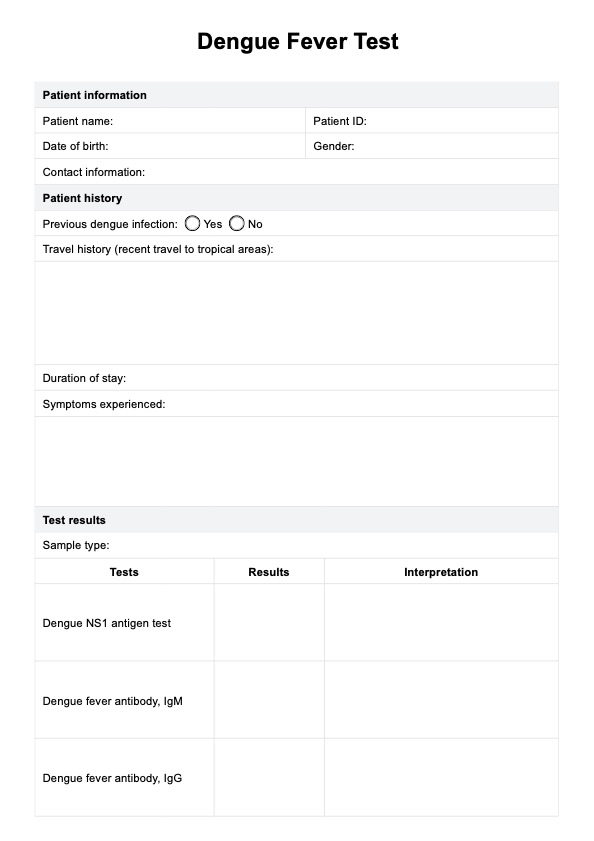To determine if dengue is positive, healthcare providers typically perform blood tests that check for the presence of the dengue virus or antibodies. A positive result indicates an active or past dengue infection, allowing for appropriate treatment and monitoring.

Dengue Fever
Learn about the Dengue Fever Test, its uses, results, and more. Download a free Dengue Fever Test example.
Use Template
Dengue Fever Template
Commonly asked questions
Warning signs of dengue include severe abdominal pain, persistent vomiting, rapid breathing, and bleeding gums or nosebleeds. These symptoms may indicate the progression to severe dengue, requiring immediate medical attention.
The fastest test for dengue fever is the NS1 antigen test, which can detect the presence of the dengue virus within the first few days of infection. This rapid diagnostic test provides results within hours, allowing for timely intervention.
EHR and practice management software
Get started for free
*No credit card required
Free
$0/usd
Unlimited clients
Telehealth
1GB of storage
Client portal text
Automated billing and online payments











